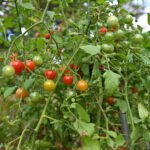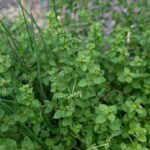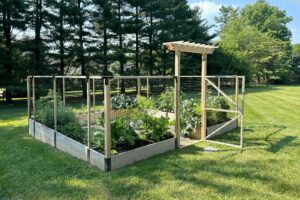
[et_pb_section fb_built=”1″ admin_label=”section” _builder_version=”4.27.0″ da_disable_devices=”off|off|off” global_colors_info=”{}” da_is_popup=”off” da_exit_intent=”off” da_has_close=”on” da_alt_close=”off” da_dark_close=”off” da_not_modal=”on” da_is_singular=”off” da_with_loader=”off” da_has_shadow=”on”][et_pb_row admin_label=”row” _builder_version=”4.16″ background_size=”initial” background_position=”top_left” background_repeat=”repeat” global_colors_info=”{}”][et_pb_column type=”4_4″ _builder_version=”4.16″ custom_padding=”|||” global_colors_info=”{}” custom_padding__hover=”|||”][et_pb_text _builder_version=”4.27.2″ _module_preset=”default” text_text_color=”#000000″ link_font=”|700|||on|||#000000|” link_text_color=”#000000″ header_2_line_height=”1.5em” header_2_font_size_tablet=”” header_2_font_size_phone=”23px” header_2_font_size_last_edited=”on|phone” global_colors_info=”{}”]
Introduction
As the growing season comes to a close, it’s time to turn your attention to an often-overlooked aspect of gardening: soil care. Proper end-of-season soil maintenance is crucial for ensuring a thriving spring garden, and composting plays a vital role in this process. Whether you’re a seasoned gardener or just starting, following these key practices will help prepare your raised bed vegetable garden for success in the coming year.
[/et_pb_text][et_pb_text _builder_version=”4.27.2″ _module_preset=”default” text_text_color=”#000000″ link_font=”|700|||on|||#000000|” link_text_color=”#000000″ header_2_line_height=”1.5em” header_2_font_size_tablet=”” header_2_font_size_phone=”23px” header_2_font_size_last_edited=”on|phone” global_colors_info=”{}”]
Fall Veggie Garden Clean-Up
Before diving into soil care, it’s essential to start with a clean slate. Begin your fall garden clean-up by removing any spent annual plants, particularly those with visible signs of pests or disease. Leaving behind decaying plants can create a haven for pests and diseases, which may overwinter in your soil and wreak havoc come spring. Disposing of this debris not only keeps your garden tidy but also minimizes the risk of problems in the next growing season.
[/et_pb_text][et_pb_text _builder_version=”4.27.2″ _module_preset=”default” text_text_color=”#000000″ link_font=”|700|||on|||#000000|” link_text_color=”#000000″ header_2_line_height=”1.5em” header_2_font_size_tablet=”” header_2_font_size_phone=”23px” header_2_font_size_last_edited=”on|phone” global_colors_info=”{}”]
Composting for Nutrients and Weed Suppression
One of the best practices you can implement this fall is adding a layer of compost to your raised beds. Compost replenishes essential nutrients, enriches soil structure, and helps suppress weeds. Unlike traditional in-ground gardens, raised beds require regular nutrient replenishment. As plants absorb nutrients from the soil, they are also harvested for our meals, leaving the soil depleted.
Compost is a fantastic way to replenish these nutrients, providing vital elements like nitrogen that are essential for healthy plant growth. Its thick texture improves soil volume and structure, countering the compaction that can occur over the growing season. Plus, a thick layer of compost blocks sunlight, helping to reduce weed growth from any dormant seeds lurking in your soil. You can easily find bags of compost at your local garden center.
[/et_pb_text][et_pb_image src=”https://backyard-eats.com/wp-content/uploads/2024/06/8-3.jpg” title_text=”8″ show_bottom_space=”off” _builder_version=”4.27.2″ _module_preset=”default” custom_margin=”20px||20px||true|false” global_colors_info=”{}”][/et_pb_image][et_pb_text _builder_version=”4.27.2″ _module_preset=”default” text_text_color=”#000000″ link_font=”|700|||on|||#000000|” link_text_color=”#000000″ header_2_line_height=”1.5em” header_2_font_size_tablet=”” header_2_font_size_phone=”23px” header_2_font_size_last_edited=”on|phone” global_colors_info=”{}”]
Other Soil Amendments
In addition to compost, refreshing your soil with other organic materials can significantly enhance its fertility. While specific amendments may vary, using well-aged or treated organic matter can improve nutrient content and microbial activity, both of which are crucial for healthy plant growth.
Adding these materials in the fall allows them to break down over winter, ensuring that nutrients are readily available for your plants when spring arrives. Aim to work these amendments into the top few inches of soil to maximize their effectiveness.
[/et_pb_text][et_pb_text _builder_version=”4.27.2″ _module_preset=”default” text_text_color=”#000000″ link_font=”|700|||on|||#000000|” link_text_color=”#000000″ header_2_line_height=”1.5em” header_2_font_size_tablet=”” header_2_font_size_phone=”23px” header_2_font_size_last_edited=”on|phone” global_colors_info=”{}”]
Mulching Perennials in Fall
If you have in-ground garden beds, especially those containing perennial plants, adding mulch can be incredibly beneficial during the fall. Mulch helps regulate moisture and temperature in the soil. By blocking sunlight, it not only suppresses weeds but also slows evaporation, keeping your soil moist longer.
Mulch can also trap heat in the soil, preventing the warmth accumulated during the summer from escaping too quickly. This is especially important for perennial plants that need some warmth to survive the winter months.
Moreover, during periods of heavy rain, mulch can slow down soil erosion, protecting the integrity of your garden beds. Organic mulches, such as straw or shredded leaves, can also break down over time, adding more organic matter to your soil as they decompose.
[/et_pb_text][et_pb_image src=”https://backyard-eats.com/wp-content/uploads/2024/06/14-2.jpg” title_text=”14″ show_bottom_space=”off” _builder_version=”4.27.2″ _module_preset=”default” custom_margin=”20px||20px||true|false” global_colors_info=”{}”][/et_pb_image][et_pb_text _builder_version=”4.27.2″ _module_preset=”default” text_text_color=”#000000″ link_font=”|700|||on|||#000000|” link_text_color=”#000000″ header_2_line_height=”1.5em” header_2_font_size_tablet=”” header_2_font_size_phone=”23px” header_2_font_size_last_edited=”on|phone” global_colors_info=”{}”]
Assessing Fall Garden Performance
Fall and winter are excellent times to reflect on your growing season. Take a moment to assess what crops thrived and what challenges you faced. This evaluation is essential for adjusting your gardening strategies in the coming year. If you experienced pest or disease pressure, proper soil care can help mitigate these issues next season.
Consider your crop rotation plans as well. For example, if you grew nightshades like tomatoes and peppers in one location this year, it’s essential to rotate them every three years to prevent nutrient depletion and disease buildup. Thoughtful planning now can lead to a more productive and healthy garden in the future.
[/et_pb_text][et_pb_text _builder_version=”4.27.2″ _module_preset=”default” text_text_color=”#000000″ link_font=”|700|||on|||#000000|” link_text_color=”#000000″ header_2_line_height=”1.5em” header_2_font_size_tablet=”” header_2_font_size_phone=”23px” header_2_font_size_last_edited=”on|phone” global_colors_info=”{}”]
Conclusion
As you prepare for the changing seasons, remember that end-of-season soil care is a vital step toward a successful spring garden. By focusing on composting, refreshing your soil with organic materials, mulching, and reflecting on your growing practices, you set the stage for healthy plants and bountiful harvests in the upcoming year.
Contact us today to book a consultation with one of our garden designers and start building your edible garden. And sign up for our newsletter for more expert gardening advice!
[/et_pb_text][et_pb_button button_url=”@ET-DC@eyJkeW5hbWljIjp0cnVlLCJjb250ZW50IjoicG9zdF9saW5rX3VybF9wYWdlIiwic2V0dGluZ3MiOnsicG9zdF9pZCI6IjU4MjY0In19@” url_new_window=”on” button_text=”BOOK A CONSULTATION” button_alignment=”left” button_alignment_tablet=”left” button_alignment_phone=”left” button_alignment_last_edited=”on|tablet” disabled_on=”off|off|off” _builder_version=”4.27.0″ _dynamic_attributes=”button_url” _module_preset=”737bea5a-e063-4b24-af3f-21ce28f0bf38″ button_bg_color=”gcid-3b5ac83a-684c-4379-a559-60b2aa9e8157″ button_border_color=”gcid-3b5ac83a-684c-4379-a559-60b2aa9e8157″ button_letter_spacing=”1px” button_font=”Roboto|700||on|||||” z_index=”90″ custom_margin=”0px|0px|30px|0px|false|false” custom_margin_tablet=”0px|0px|0px|0px|false|false” custom_margin_phone=”0px|0px|0px|0px|false|false” custom_margin_last_edited=”on|desktop” locked=”off” global_colors_info=”{%22gcid-3b5ac83a-684c-4379-a559-60b2aa9e8157%22:%91%22button_border_color__hover%22,%22button_bg_color%22,%22button_border_color%22%93}” button_text_color__hover_enabled=”on|hover” button_text_color__hover=”#844B67″ button_bg_enable_color__hover=”on” button_border_color__hover=”#88667b” button_border_color__hover_enabled=”on|desktop”][/et_pb_button][/et_pb_column][/et_pb_row][/et_pb_section]






